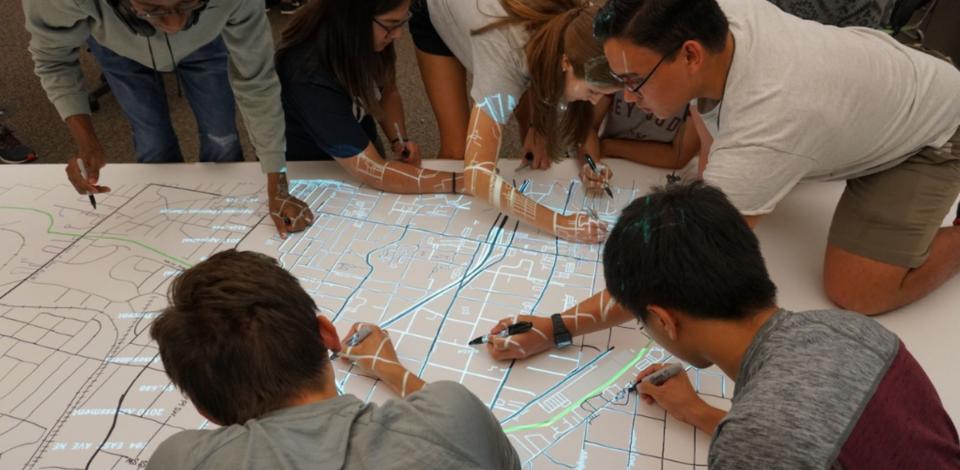Georgia Tech-Led Project Awarded $1 Million NSF Grant
Mapmaking to promote youth advocacy for disaster resilience

Georgia Tech students testing out an early version of the Map Spot tool. Credit: Yanni Loukissas
The National Science Foundation (NSF) has awarded a $1 million Stage 2 Civic Innovation Challenge (CIC) grant to the Georgia Tech-led project, “Visualizing Resilience: BIPOC Youth advocacy through Mapmaking.”
The award is part of a partnership between the U.S. Department of Homeland Security and the U.S. Department of Energy with the National Science Foundation to distribute a total of $15.9 million to civic partner teams around the nation seeking to address community-based challenges.
52 teams across 30 states were selected for planning grants to refine their project ideas. Among those, 17 teams were selected for awards of up to $1 million to begin executing on their plans immediately.
These 17 teams are divided into two tracks, A and B. Track A comprises projects that focus on community and mobility, including areas such as affordable housing, jobs, food access, and childcare access. Track B comprises projects that focus on resilience to natural disasters, aiming to better equip communities to prepare for and respond to such disasters.
The Georgia Tech-led project “Visualizing Resilience: BIPOC Youth Advocacy Through Mapmaking” was selected for immediate implementation and falls under Track B, as it aims to engage Black, Indigenous, and People of Color youth living within frontline coastal communities in disaster resilience planning, through mapmaking and advocacy.
The Georgia Tech team, which includes Nisha Botchwey, associate dean of academic programs at Georgia Tech Professional Education (GTPE), leverages their original Youth Advocacy for Resilience Disasters (YARDs) curriculum to accomplish this goal.
“The Youth Advocacy for Resilience to Disasters (YARDs) curriculum empowers local youth to identify environmental concerns that threaten their 'yard’ or community, create evidence-based, collaborative resilience plans to prevent or mitigate their effects, and present those plans to local government officials and policymakers,” said Botchwey. “The youth are leading these efforts to create a future they see, they map, they plan."
With the NSF award, this forward-thinking Georgia Tech team is one step closer to achieving their goal and empowering the next generation to take action in their communities.
To learn more about "Visualizing Resilience: BIPOC Youth advocacy through Mapmaking," click here.

